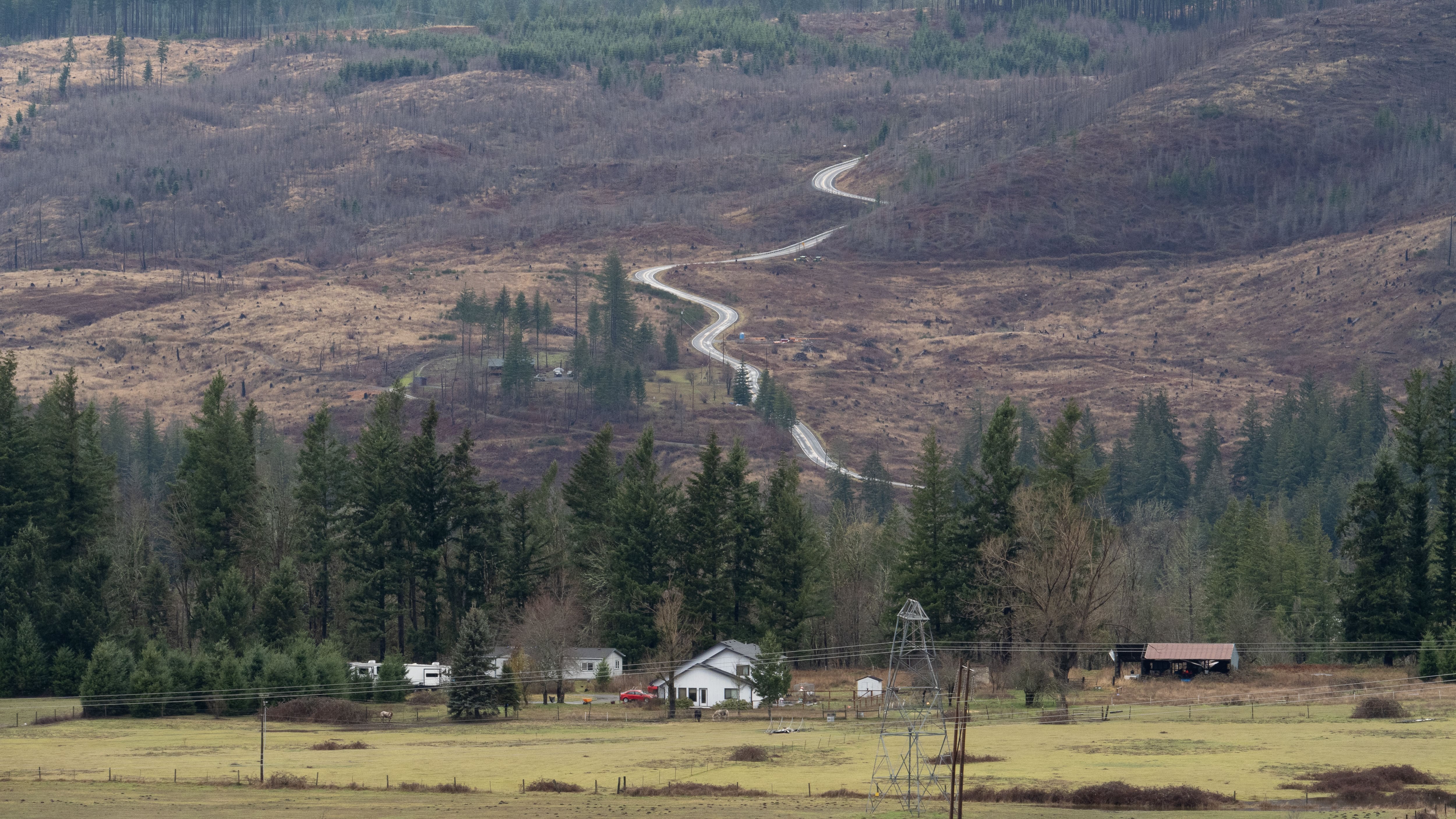This story was produced by the Oregon Journalism Project, a nonprofit newsroom covering the state.
As the 2025 legislative session lurches toward its conclusion, a bipartisan bill aimed at speeding wildfire damage payouts remains stalled in committee.
The looming expiration of a federal tax break for fire victims adds urgency to Senate Bill 926.
That tax break—available to people who get financial compensation for losses in fires that are declared disasters—is set to expire at the end of this year. If it expires, as of January 2026, fire victims would begin paying federal income tax on any wildfire compensation. On a million-dollar payout, for example, a third of the money would go to Uncle Sam. (Another third or so typically goes to the victim’s attorney.)
SB 926 would, among other things, prohibit utilities from charging ratepayers for costs associated with wildfires the utilities were found responsible for, and compel them to settle with wildfire victims. It would restrict utilities from paying dividends, repurchasing stock, or making certain other expenditures if they have unpaid obligations to wildfire victims.
Lawmakers from wildfire-scarred districts sponsored the legislation as a means of pushing PacifiCorp to promptly compensate property owners for damages from fires for which the utility is liable. If that compensation were to be paid out after the federal tax break expires, however, it would lose a big chunk of its value because recipients would have to pay federal taxes.
(Lawmakers passed an exemption on state income taxes last year for compensation paid to victims of certain fires. Unlike the federal tax break however, the state tax break did not include an expiration.)
Bob Jenks, executive director of the Citizens Utility Board, a nonprofit that advocates for utility ratepayers, described the situation in testimony on May 12.
“We understand and agree with the intent of the bill—to bring swift justice to the victims of the 2020 utility-caused wildfires,” Jenks testified. “What they have suffered is unacceptable, especially because these disasters were preventable. That they are still forced to suffer due to delays of justice is also unacceptable.”
In testimony opposing SB 926, PacifiCorp denied its equipment was responsible for 2020 fires in Santiam Canyon. A Multnomah County jury found the utility “grossly negligent” in 2023 for the Santiam fires. The utility is appealing.
Portland General Electric, which noted it had never been found negligent for any wildfires, also testified against the bill, arguing it could unreasonably penalize utilities.
Despite the utilities’ opposition, the bill passed the Senate floor by a 22 to 6 vote April 23, with three Democrats and three Republicans voting against it. At least some of the no votes came from concerns that the bill could hamstring utilities financially and slow the development of green energy (a process already moving at the pace of a wounded snail, as Oregon Public Broadcasting and ProPublica recently reported).
Since then the House Judiciary Committee has held three work sessions and three public hearings on the bill.
In one of those hearings, testimony came from After the Fire USA, a California nonprofit that pushed for federal tax breaks that benefit qualified fire victims in all states. The nonprofit emphasized the urgency of passing SB 926.
“If the federal provision expires, wildfire survivors will once again face ordinary income taxes on compensation for their losses—leaving them with only a fraction of the funds needed to rebuild,” the group’s executive director Jennifer Gray Thompson testified.
The House Judiciary Committee unanimously approved the bill on May 23 and referred it to the Joint Ways and Means Committee, where it sits today.
Proponents of the bill are eager to see their constituents get any compensation owed as soon as possible because if the money comes after 2025, it is likely to be federally taxable.
“The fires were nearly five years ago,” says state Rep. David Gomberg (D-Otis), whose district experienced fires in 2020 and who is a chief sponsor of the bill. “Fire-impacted families are still struggling to recover. Juries have ruled but the settlements drag on and on. People have died waiting. Our survivors deserve better.”

